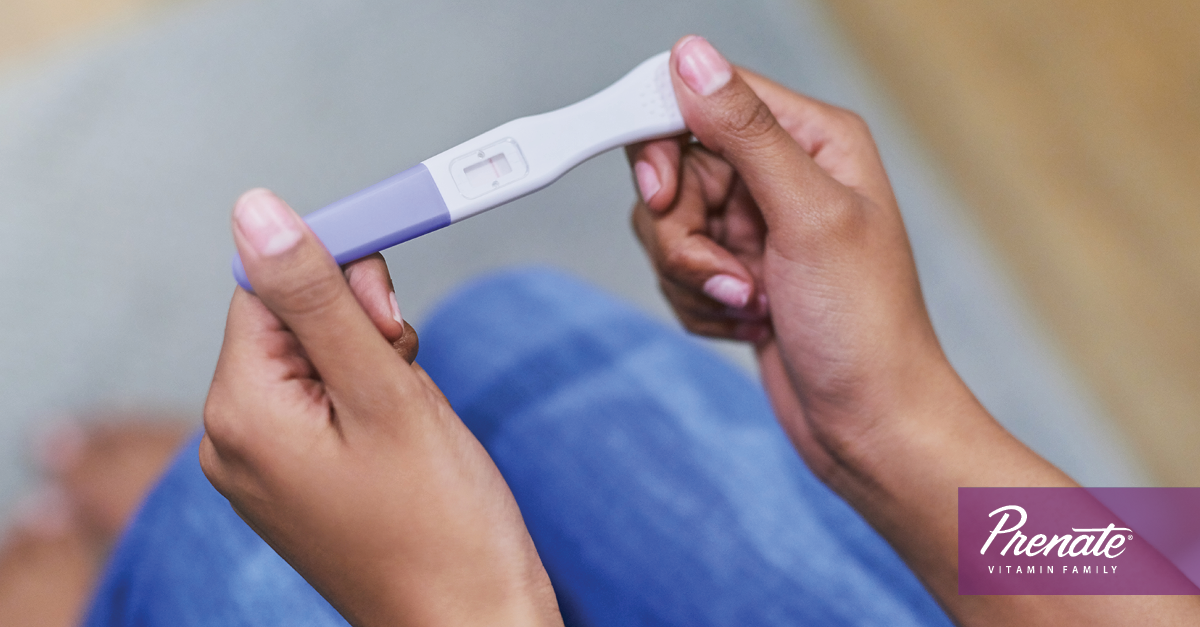Top 5 Common Early Signs of Pregnancy
June 17, 2018
Trying to become pregnant can make women hypersensitive to physical changes in their bodies. The waiting period between conception and a positive pregnancy test can be emotionally draining and physically exhausting.
For many women, experiencing one or more physical changes can be an early indication that they’re expecting. According to a poll conducted by the American Pregnancy Association, the following are common signs of early pregnancy.1
Missed Period
After a woman becomes pregnant, she should stop having periods. Some women experience spotting or bleeding during pregnancy. This requires a consultation with a doctor to rule out any problems.2
Twenty-nine percent of women polled by the American Pregnancy Association reported that their first pregnancy symptom was a missed period.1 Sometimes, a woman experiences spotting and cramping when the embryo implants to the uterus. This typically occurs between six and 12 days after conception. Only 3 percent of women polled said that implantation bleeding was their first sign of pregnancy.1
Breast Changes
Swelling and tenderness in the breasts were reported by 17 percent of women polled.1 These symptoms may start as early as one week after conception. Swollen and tender breasts are also a common symptom of PMS.
In pregnancy, breast discomfort is the result of rising progesterone levels. For many women, breast soreness decreases after the first few weeks of pregnancy as their bodies get used to first-trimester hormonal changes.2
Increased Urination
As a pregnant woman’s blood volume increases, her kidneys must process extra fluid. This can increase the need to urinate.2 Urinary tract infections become more common for some women in early pregnancy. For this reason, it’s important for pregnant women to urinate as soon as possible when they feel an urge and to wear cotton underwear.4
Fatigue
High progesterone levels cause excessive tiredness for many women during their first trimester.5 It may be difficult for some women to get the extra sleep they need throughout their pregnancy. Relaxation techniques such as mindfulness, breathing exercises and gentle yoga before bed can help increase sleep quality.
Nausea
Although commonly referred to as morning sickness, pregnant women may experience queasiness at any time of the day or night. Twenty-five percent of women polled by the American Pregnancy Association reported that nausea was their first pregnancy symptom.1
Nausea with or without vomiting typically appears between two and eight weeks after conception. For many women who experience morning sickness, nausea goes away after the first trimester.2 Since proper hydration and nutrition are so important throughout pregnancy, women who experience morning sickness should discuss their symptoms with their doctor.
Proper nutrition is essential in the preconception phase, and the best way to meet the nutritional needs of mom an baby is with a balanced diet rich in the vitamins and minerals.
Prenate Mini® and Prenate Pixie® are small prenatal vitamins designed for preconception. These small but mighty prescription supplements are robust enough to carry mom through preconception and to support both mom and baby throughout pregnancy. Talk to your doctor to see if Prenate Mini® and Prenate Pixie® may be right for you in early pregnancy and beyond.
You Are About To Leave This Website
By clicking continue, this link will take you to a website to which Alora Pharmaceuticals Policies & Terms of Use do not apply. Alora and its subsidiaries do not control the content or accuracy of third-party websites and assume no responsibility for their use.











